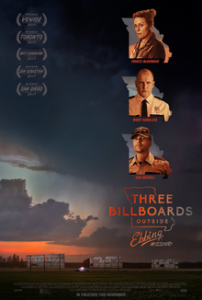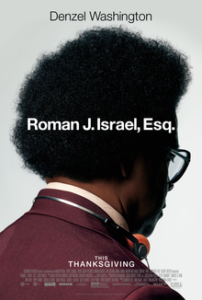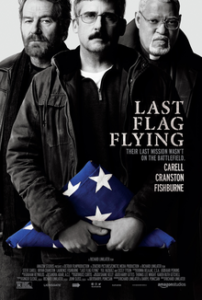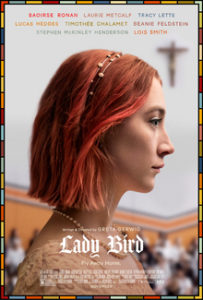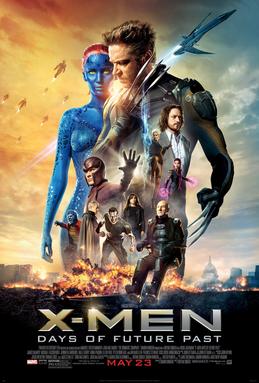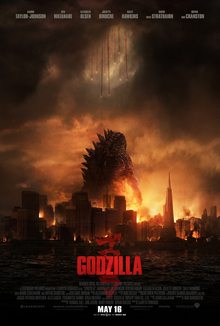Isle of Dogs (2018)
Some people will probably call me crazy (in addition to “rich, white, and bored”) for giving this movie a perfect score, but, what can I say? I enjoyed it from end to end and will probably go see it again to pick out things I missed the first time (and maybe again after that).
I was a bit skeptical that Isle of Dogs would be worth the wait (the four years since The Grand Budapest Hotel is the longest gap between Wes Anderson features), but that notion was quickly put to bed. Every frame of the film is a rich feast for the eyes (which is logical given the time intensity of stop-motion animation), and every performance is a joy to listen to (regardless of your ability to understand all of them at all times).
It’s a simple enough story about a boy and his dog, and whatever influences it has are certainly worn on its sleeve, but somehow the movie still manages to feel original.
I’m on record as saying that I don’t get hyped up for the Oscars anymore, which is still true, but, I will say that if Isle of Dogs doesn’t win Best Animated Feature next year, it’ll be a travesty (although, if I’m being really honest, I’d like to see it as a Best Picture nominee, but then again I don’t really care about the Oscars).
It’s heartfelt, it’s funny, but, mostly, it’s pure movie magic if I’ve ever seen it.
Rating: ★★★★★
The Death of Stalin (2017)
As you might guess by its title, The Death of Stalin (based on the French graphic novel of the same name) is about…the death of Stalin, and the power struggle in the immediate aftermath. What you might not guess is that it’s not some hoity toity political drama, but rather every major player is portrayed to be petty and foolish, if not downright stupid.
This is all thanks to writer/director Armando Iannucci (don’t be fooled by the name, kids; he’s Scottish, like Peter Capaldi), whose work I’m vaguely familiar with. I’ve seen In the Loop and an episode or two of Veep, so I know his political-satire-as-dark-comedy style. You might not think it would work for Soviet Russia, but I thought it was fantastic.
One of the greater purposes of humor is that it allows us to process the unpalatable in a way that leaves us with our sanity intact, which is precisely what this film does. It uses satire and farcical comedy to demonstrate the extreme absurdity of the totalitarian regime of Stalin and his cohorts. Certain critics have found this clash to be in poor taste, or simply unfunny, but I think this film makes its point rather eloquently, and the performances from Steve Buscemi and Simon Russell Beale in particular help bolster it even more so.
Honestly, the only element I’m really taking points off for is some digital night shooting that took me out of the movie, and a few bits of humor didn’t quite work for me (that’ll happen in a comedy), but other than that, it’s hard to ask for more than what The Death of Stalin delivered.
Rating: ★★★★½
Unsane (2018)
Right off the bat, I’ll say this is a great example of a 21st Century Hitchcockian Thriller.
The story is horrifyingly plausible (credit to screenwriters Jonathan Bernstein and James Greer), the performances are believable (kudos to Claire Foy and Jay Pharaoh), and the movie fills you with an utter sense of dread that would make Brian De Palma proud.
There’s really just one problem. The film was shot on an iPhone.
I don’t know if this was done purely as an experiment, or strictly to keep production costs down, or what, but I can tell you that it doesn’t appear to be a thematic choice.
Don’t get me wrong, it’s not like the whole movie is ruined because of this, I just think it would be to the movie’s benefit to look (and sound) like a movie, and there are moments when you are painfully aware that this was done on a phone and not something more substantial.
It’s a fine film, I’ll be happy to watch it again in the future, but it’s difficult for me to say it’s a must-see on the big screen, and I wish that wasn’t the case.
Rating: ★★★½
Red Sparrow (2018)
There’s a fairly popular notion regarding espionage these days that we don’t even need spies anymore because everything can be done by computer, and the response to this in media has largely been to equip fictional spies (both regular and super) with more and more technology, regardless of how cartoonish it seems.
The major reason why I enjoyed Red Sparrow so much is that it completely ignores this erroneous line of thinking, and brings spycraft back to the same old game it’s always been: psychology.
In short, Red Sparrow feels like a throwback in the best way, without feeling obsolete (definitely le Carré-esque, if you were wondering). Apparently some people have found some of the more “adult” elements to be rather shocking (which is kind of shocking to me because I didn’t think people were shocked by anything anymore, at least when it comes to movies), but I didn’t feel that it was exploitative relative to the story being told.
This film is a slow burner with some action, but no action for action’s sake, which may not be enough for some people, but I appreciated how grounded it was.
Not for everyone, but it’s not the trash you may have heard it is.
Rating: ★★★★☆
Thoroughbreds (2017)
Of all the movies in this post, this was probably the one I was the most let down by, and that’s not even saying it’s bad.
Thoroughbreds is a fine film on every level, but it’s tough for me to say there’s anything particularly special about it (which is kind of sad given that it’s Anton Yelchin’s final film performance, but what are you going to do?).
Of the two leads, I give the edge to Olivia Cooke in terms of her performance, and the story at least feels somewhat original, but in the end I’m left feeling like the movie is in the shallows rather than the deep end where it should be.
Worth seeing once, but far from a must-see.
Rating: ★★★☆☆






